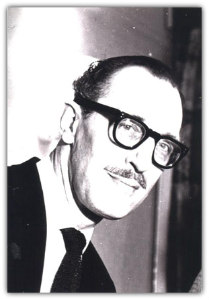
HOMEWesley Britton’s Books,
|
Spies on FilmSpies on Television & RadioSpies in History & LiteratureThe James Bond Files |
|
The James Bond Files ~ The O.F. Snelling
007 Letters – Selected Correspondence, 1979-1994
Part 2 Edited by Wesley Britton 
Oswald Frederick Snelling The correspondence between O. F. Snelling and Ronald Payne began after their meeting in 1979 and many references are to their budding friendship. Not surprisingly, their early correspondence included discussions of the publishing industry, interesting authors, and James Bond in print and on screen. So the excerpts and passages below were chosen for their interest to the general reader, omitting matters relevant only to the two friends. Explanatory notes have been inserted and some material has been consolidated for easier reading. All words inside [] are not Snelling’s but provided by the editors for clarity. A [??] indicates a word faded on the original page and unreadable. (The letter below addresses two topics – Snelling’s dislike of John Le Carré and is among the first letters discussing his love of Hitchcock.) 19 March, 1980 . . . I know about The Devil’s Alternative, but haven’t got round to it yet. I expect I will, eventually. At the moment, Smiley’s People still heads the best-seller list. I’ve avoided that one. In fact, the only John Le Carré book I ever read was The Spy Who Came in from the Cold. I wasn’t impressed. This was probably a reaction after the more thrilling Fleming books. I have, of course, seen the television series of Tinker, Tailor . . . but this was so abstruse and involved that I couldn’t keep track of what was going on. . . . Rebecca has always been a novel and film very dear to my heart. I first saw it in the cinema in the very early days of the war. It was Hitchcock’s first effort after he went to the States. I was absorbed, and absolutely knocked out by the way Hitch treated it and arrived at the denouement. I then read the novel. It was a best-seller over here in the late ‘thirties. Daphne du Maurier happened to live in a place very much like Manderley, only not so large, and situated very near the coast. She simply peopled her romantic yarn with characters she drove past right into a locale she knew like the back of her hand. It was her greatest success. As you can imagine, after having seen Hitchcock’s effort countless times, I watched every episode of the television remake with Jeremy Brett. It was very well done, but they are re-running it at this very moment over here, and I am not sufficiently intrigued to follow it again. (The next letter first discusses The Man With the Golden Gun – demonstrating Snelling’s dislike of the Moore-era Bond. It concludes with an observation regarding an episode of The New Avengers.) 6 January, 1981 Dear Ronnie, Let me set your mind at rest at once. Please do not worry. There is nothing wrong, except that while you are still intensely interested in James Bond, he is now only a commercialised figure for me, 100% money for movie moguls. We had one of the more recent films on prime time television recently. It starred Roger Moore. Quite honestly, I don’t even know now which one it was. Roger got up to some ridiculous antics, but whichever novel gave the film its name, it was so far divorced from the original – ah, I’ve just remembered. Golden Gun. I told my wife, Molly, who hails from Jamaica, that this would be worth seeing: practically the whole of the action took place in surroundings we both know. In point of fact the action in the film took place on the other side of the world. I can’t even recall now if I watched it through, or fell asleep. I do recall that Scaramanga in the film had three nipples. I vaguely remember that, the dossier Bond-in-the-book saw revealed the same thing. I am now struggling to think up any other similarity in the book and film. Frankly, as I have told you before, Ronnie, I am completely and thoroughly bored with 007, 1970s celluloid version of sci-fi of the Star Wars/Empire Strikes Back/Galactic/Star Trek variety, and when it becomes allied with Bondage and space ships and rockets I am put off completely and quite nauseated. Wow, when they have played that stuff down a bit I am still past it. (While I’m typing this, I’m also watching, with half an eye, the delectable [Joanna] Lumley delivering flying right-handers which would break her brittel knuckles, and kicking some poor Kojakpated Oriental in the balls with lunges which would either split her tights or vagina – possibly both, were she in earnest. I just can’t believe dis stuff no more. (Steed, or Stead, is now just a bloody puppet.) Notes ~
In a letter dated 12 January, 1985, Snelling made a quick reference to another TV spy – “Patrick McGoohan does sound American to us, since he went to your country, but I believe he was born over there. In most of his earlier stuff he has a very marked British accent.” (In 1980, Snelling used his experiences in the book trade in articles for the Antiquarian Book Monthly Review. These developed into the book discussed below, Rare Books and Rarer People: Some Personal Reminiscences of “The Trade” [1982]. As he notes, one chapter dealt with Peter and Helen Kroger, who, using the cover of booksellers [which they genuinely were], assisted Gordon Lonsdale, the Russian spy. Snelling visited him, and acquired books to help him write while in prison. In 1965, Snelling had made the hazardous journey to Russia to meet him again and negotiate the writing and publication of his memoirs, Spy.) 30 November, 1982
. . . I am very pleased to say that my new book is a runaway success over here in the antiquarian book world, and looks like taking hold in the new bookshops. Apart from a very good nationwide radio interview, and the press coverage I think I have told you about, I have now had an excellent review in The Spectator. You may not know this one, but the nearest description I can give it is to say that it is a sort of English Time magazine. I am also getting a review in a weekly called Time Out, which covers all the entertainment going on in London, from films, stage, sport, television, etc., to books and exhibitions. Also, I’m told that I have a full-page eulogy in the latest issue of Book World Advertiser, although a copy of this hasn’t come my way yet. And the December number of Antiquarian Book Monthly Review is giving the book a big splash, too. Oak Knoll Books, of New Castle, Delaware, have ordered fifty copies. They have a very good outlet in the States for this sort of book, albeit specialised. I anticipate that there will be a follow-up later on, and although the book deals primarily with British events and people, there is a strong possibility that we shall soon find an American publisher, as many of the stories and anecdotes have a universal appeal, and my longest chapter deals with my close association of two American (Bronx, New York) spies, Peter and Helen Kroger, who posed as Canadians, twenty years ago, and were caught and went to prison after a big trial and scandal. (They had been closely involved in the Rosenberg atomic secrets case earlier.) This “spy” association ties up nicely with my success with the fictional spies of Ian Fleming, and the connection is doing me no harm at all. This could arouse even more interest in the re-issue of Double 0 Seven, since that book gets a mention in most reviews of the present one. (While the date of the next letter is uncertain, it is of special interest. See his comments on novelist John Gardner and compare with the following letter and the notes that follow it.) . . . My hopes for Double 0 Seven grow dim. To tell the truth, Bond over here is not too strong at the moment. Suddenly, we don’t hear a terrible lot about him at all, or even Roger Moore, Sean Connery, et al. This suits me. I’m bored to tears with the lot of them, and all their works. The author of the Dr. Jason Love books, (Niven), as far as I can recall, is one James Leasor. After Fleming had died, two rival publishers came out with new characters they thought would fill the market. One plumped for Jason Love. The other latched on to a newspaper-man from the midlands, who wrote about a rather disreputable character called Boysie Oakes. I think the writer’s name is Gardner. From the reviews, I was more attracted to Jason Love. I bought that book, and was very disappointed. The other ones happened to click. I can’t recall the titles easily. I think one was called Understrike, or something. I don’t even recall the author’s full name – something Gardner. I think he’s very popular, but I’m out of touch with thrillers. The only Bond film I would ever be interested in would be one shot completely or as near as possible from a straight Fleming script. I have no interest at all in the [??] shenanigans indulged in by Broccoli characters. Bond, for me, is the original West End clubman, who lives quietly in Chelsea, has his little amorous flings while not on a job, and who then gets shot off to places like Jamaica and Turkey by M. He knows nothing about rockets, space travel and silver suits. He finds Star Wars and all that juvenilia as dull and as boring as I do. I want to see a Bond film which develops that man’s character, but I don’t think I ever will. (The following excerpt from a later letter shows Snelling came to know a bit more about John Gardner.) . . . I’m enclosing a cutting I snipped out of the Sunday Times specially for you. It was published only a day or two before Gardner’s Licence Renewed was published. I wrote to him, of course, pointing out that he’d perpetrated a couple of howlers. (I wonder if you can spot them?) He was kind enough to write back to me. He says that it was all the fault of the Sunday Times people. They had edited his article to hell without consulting him. He admitted his errors and said, in fact, that before he even started on his own book he had re-read mine to familiarise himself with the subject. I haven’t read his new book yet. I’ll get round to it some [??]. For that matter, I haven’t even read KA. Notes ~
In 1964, John Gardner developed his send-up of Bond, creating his character Boysie Oakes for The Liquidator as a joke. Oakes appeared in a series of novels including Understrike (1973). He succeeded Kingsley Amis as the author of official 007 continuation novels, his License Renewed appearing in 1981. For 15 years, Gardner kept the literary flame alive with For Special Services (1982), Icebreaker (1983), Scorpius (1988), and Cold (1996), among others. While he didn’t refer to the Bond novels of Raymond Benson in this packet of letters, on 12 January, 1985, he mentioned the book that was, in many ways, a successor to Double O Seven – “I shall probably read The James Bond Companion, if ever it appears over here, just to see what Benson says about my thing, but if Fleming were alive today and still writing I doubt that I could plough through one of his novels now.” More letters from O.F. Snelling in Part 1 and Part 3, in The James Bond Files section of this website. |